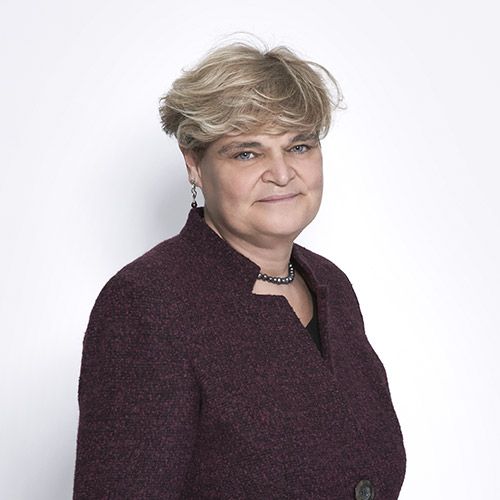Bachelor’s Degree in Nursing
Overview
A nurse is a healthcare professional who is responsible for nursing care and, as such, promotes health, cares for patients of all ages and provides health
education to individuals, families and the community (Italian Ministerial Decree no. 739/1994).
Of all the healthcare professions, that of the nurse is characterised by the special relationship that is established with the patient.
Indeed, nursing care focuses on the person, rather than on the illness: whereas medicine treats the disease, a nurse cares for the patient. The profession of nurse is not merely the most in-demand, it is also that which offers the greatest possibility for professional development in all fields of medicine.
The Bachelor’s Degree in Nursing provides students with a structured course that focuses on the development of clinical reasoning in order to identify the
person’s care needs, to plan and manage evidence-based nursing interventions and, lastly, to assess the results of the care provided.
Educational project
The UniSR Bachelor’s degree in Nursing trains future nurses by providing the theoretical frameworks, methodologies and instruments (of a technical, interpersonal and educational nature) that will allow them to become responsible nursing care professionals. By developing their clinical reasoning, students will learn how to manage - with expertise and full autonomy - the health problems of their patients, by choosing appropriate evidence-based, person-oriented interventions and subsequently evaluating the results achieved.
The nurse and nursing care.
The profession of nurse is defined by the Job description (Italian Ministerial Decree no. 739 of 14 September 1994), as a professional who is responsible for nursing care and, as such, prevents disease, cares for patients of all ages and provides health education for individuals, families and the community.
The characteristics of nursing care have a technical nature, for example the management of invasive or non-invasive ventilation of patients with respiratory
insufficiency; an interpersonal nature, such as helping a patient to accept a chronic condition like diabetes or post-traumatic disabilities; and, lastly, an
educational nature, when the nurse is involved in an educational initiative to help patients look after themselves following discharge, for example, patients who have had a coronary artery bypass.
In order to perform these duties, nurses employ clinical reasoning that allows them, firstly, to identify the person’s care needs, including by using
internationally-validated measurement tools, secondly, to plan and manage nursing intervention in order to satisfy these needs, based on the highest-quality published evidence and, lastly, to assess the results achieved.
In their work, nurses are guided by the Italian Nurses’ Code of Conduct (17 January 2009) for the development of their professional identity and the
assumption of ethically-responsible behaviour, the breach of which is disciplined by the Professional Board.
The Code provides guidelines regarding the ethical principles of the profession, relationships with patients, professional relationships with colleagues and other professionals and relationships with the institutions. “Nursing care focuses not on the illness but on the person,” said Beatrice Walter in the early 20th century, whereas medicine takes care of a person’s ills, “wenurses care for the person”.
Bachelor’s degree in Nursing graduates are qualified to work in Italy, once they have registered with the Provincial Board of Nurses and the appropriate Professional Association.
Tutorage system
The tutorage system adopted by CLI-UniSR is based primarily on two figures – the professional tutor and the Internship supervisor – who help the academic staff develop and manage professional training activities and accompany students throughout the course.
Clinical learning
The clinical internship fundamental aspect of a nurse’s training that aims to connect the wealth of theoretical knowledge acquired in the various subject courses, with professional practice.
The Vita-Salute San Raffaele University’ Bachelor’s degree in Nursing offers a vast range of training opportunities both within its facilities (for example, obstetrics, gynaecology and neonatology, cardiothoracic and vascular medicine, internal medicine, surgery, rehabilitation, intensive care and emergency units) and outside it, through a number of special partnerships with other facilities, such as:
- Ospedale San Raffaele srl – Milan
- Policlinico San Donato – San Donato Milanese (Milan)
- Fondazione Casa di Ricovero Santa Maria Ausiliatrice Onlus – Bergamo
- Policlinico San Pietro di Istituti Ospedalieri Bergamaschi – Ponte San Pietro (Bergamo)
- Policlinico San Marco di Istituti Ospedalieri Bergamaschi – Zingonia-Osio Sotto (Bergamo)
- Fondazione Don Carlo Gnocchi-Hospice Santa Maria delle Grazie – Monza
- Associazione Opera San Francesco per i poveri – Milan
- Vivicare Cooperativa Sociale (Districts of the Milan City, Milan 1, Milan 2, Monza and Brianza Local Health Authorities)
The University also offers students the chance to study abroad in some of the world’s leading universities, such as:
- Saimaa University of Applied Sciences – Lappeenranta (Finland)
- Windesheim University of Applied Sciences – Zwolle (Holland)
- University of Business and Enterprise – Ostrowiec (Poland)
- Universidad Autonoma de Madrid Puerta de Hierro – Madrid (Spain)
- Universidad de Valladolid – Valladolid (Spain)
- Universitad Ramon Llull E.U.I. Blanquerna – Barcelona (Spain)
Head of course

Dean of the Faculty
Prof. Sonia Maria Rosa Levi


